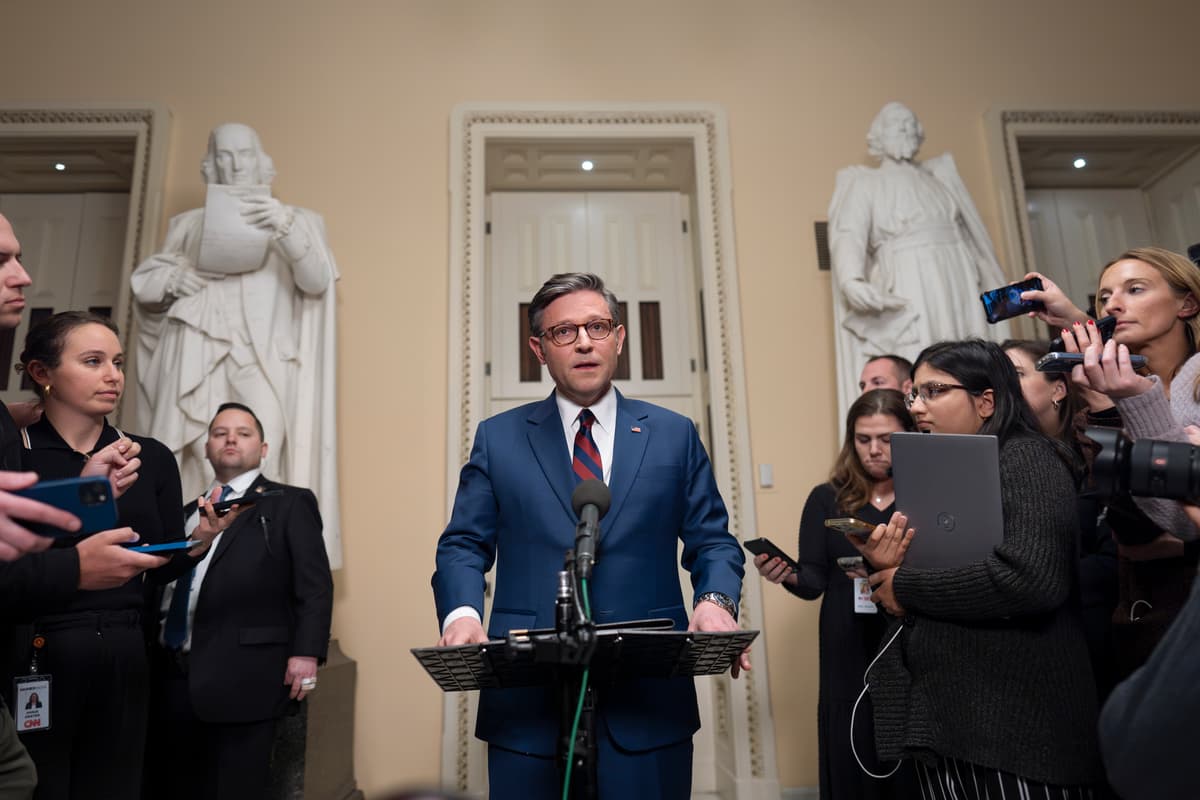A Lesson for the GOP: Simplify, Simplify, Simplify
The year-end Congressional spending drama is a warning that it will be difficult to get more than one reconciliation bill passed next year.

A lesson for the GOP: simplify, simplify, simplify.
The most important thing I’ve seen from all this year-end Congressional spending drama and the difficulty in getting agreement — is what this tells us about the difficulty of more than one reconciliation bill next year.
So far, the House has struck out twice in getting a deal to avoid a government shutdown.
And avoiding a government shutdown is desirable — not in economic terms — but in political terms it could conceivably give Senator Schumer added power through the certification of the Presidential election on January 6 — and even the Inauguration on January 20.
Schumer Democrats are diabolical, and you never know what will happen if you leave them in charge — even if for a couple more weeks.
Now, a third continuing resolution deal has been struck by House Republicans, and awaits President Trump’s approval.
It will look a lot like the short-term deal that was defeated last night. It would postpone the debt ceiling until March 14, and allegedly would cut roughly $2.5 trillion in federal spending over the course of reconciliation bills yet to be determined next year.
As anyone can plainly see, though, this relatively simple exercise of extending funding for a couple weeks, has been very difficult, very contentious, and very unpredictable.
And I believe it is a leading indicator of the potential problem the GOP may encounter next year if they continue to casually believe they can actually pass multiple reconciliation bills in 2025. They must be kidding themselves.
Recent polling by McLaughlin & Associates shows that nearly half of all voters think we are in a recession, and more than four fifths continue to worry about inflation.
Some 35 percent of voters say it’s most important for Trump to secure the border — and right behind, 26 percent say continuing growth by making the Trump tax cuts permanent. The overall economy is still the No. 1 issue, way ahead of the border.
And Trump Tax Cuts 2.0 are wildly popular — with 82 percent favoring an end to federal taxes on Social Security income. Plus, 71 percent favor ending federal taxes on tips for service workers, 64 percent favor ending federal taxes on overtime pay for workers, and 70 percent favor making the 2017 Trump tax cuts permanent.
Right now, Trump and his transition team are very popular. His approval rating is well above 50 percent. He is enjoying a nearly unprecedented post-election honeymoon.
Turning back to legislative strategy that will be so crucial Mr. Trump’s policy mandate from the election — and I think Republicans who think it will be easy to pass several reconciliation bills are badly mistaken.
Parliamentary confusion inside Republican ranks in just the last couple of days, centered on what should be a relatively simple exercise, is a major red-flag warning of making things overly complicated next year.
Delaying the tax cuts would be a big mistake. Delaying the tax cuts will not put extra money in the hands of working folks. Delaying the tax cuts will not fatten blue collar wallets. Those are the folks who voted for Trump in the battleground states and gave him his landslide.
The GOP has winning issues — such as closing the border, and cutting taxes, and drill baby drill, and cutting back on the regulatory state. Bundle them all up — and get it done as soon as possible.
And be realistic about the nearly impossible problems that several huge reconciliation bills will create.
A source close to President-elect Trump says he wants one big beautiful bill.
From Mr. Kudlow’s broadcast on Fox Business Network.

